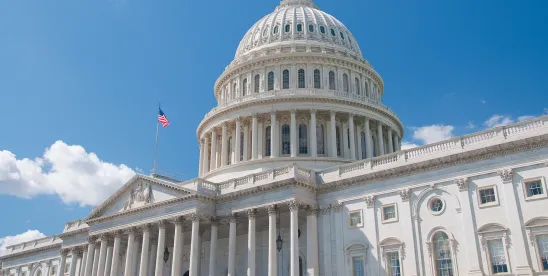Budget Reconciliation Process Begins
The Senate Budget Committee will hold a two-day markup on its budget resolution, officially kickstarting the reconciliation process. The resolution includes directions for committee work focused on immigration and energy policy. The Senate markup comes after House Republicans indicated they would mark up their own resolution last week. Senate Republicans prefer to pass two reconciliation bills this year, one on immigration and energy and another on tax policy, while House Republicans want to pass just one bill with all priorities. The House Budget Committee could still hold its own markup for its version of a budget resolution as early as this week, to chart its own path for reconciliation. At some point, both chambers will need to agree to a unified budget resolution to move the reconciliation process forward.
For healthcare, it will be important to watch what funding cuts Republicans want to use to fund their priorities. Policies up for consideration could include Medicaid work requirements, Medicaid per capita caps, and Medicare site neutral payment reforms. For a longer list, read our +Insight on the topic.
Last week, the Senate Finance Committee voted to move Robert F. Kennedy (RFK) Jr.’s nomination for secretary of the US Department of Health and Human Services (HHS) to the full Senate floor. Notably, Sen. Cassidy (R-LA), who expressed concerns about RFK Jr. in his nomination hearings, voted yes. The full Senate vote is likely to happen as early as this week. RFK Jr. is expected to be confirmed, after which more healthcare administrative actions will likely occur. These could include more healthcare executive orders, potentially inclusive of a rumored pending HHS personnel restructuring or reduction.
Over the weekend, the National Institutes of Health (NIH) issued guidance capping indirect costs for NIH grants at 15%, effective February 10. Indirect costs support overhead and administrative costs, with the average grantee receiving 30% for indirect costs. The cap will not apply to current grants, but only future grants. Research institutions, including universities and research hospitals, responded that capping indirect costs at 15% would create drastic harm and stymie medical research. Democrats argue that the guidance is illegal, and some Republicans, including Sen. Britt (R-AL), indicated that they will work with the NIH to mitigate harm to research centers. In addition to reducing federal expenditures, another likely goal of the Trump administration is ensuring that grantees do not use indirect costs to support diversity, equity, and inclusion efforts. Litigation on this issue is likely. Congress also could choose to incorporate new limits on indirect costs as a cost-saving measure in the appropriations process or even potentially within reconciliation.
Today’s Podcast
In this week’s Healthcare Preview, Debbie Curtis and Rodney Whitlock join Julia Grabo to break down the latest actions by the Trump administration, the upcoming Senate vote to confirm Robert F. Kennedy Jr. as HHS Secretary, and the state of the budget reconciliation process as the Senate Budget Committee moves forward this week with a budget resolution markup.








 />i
/>i
